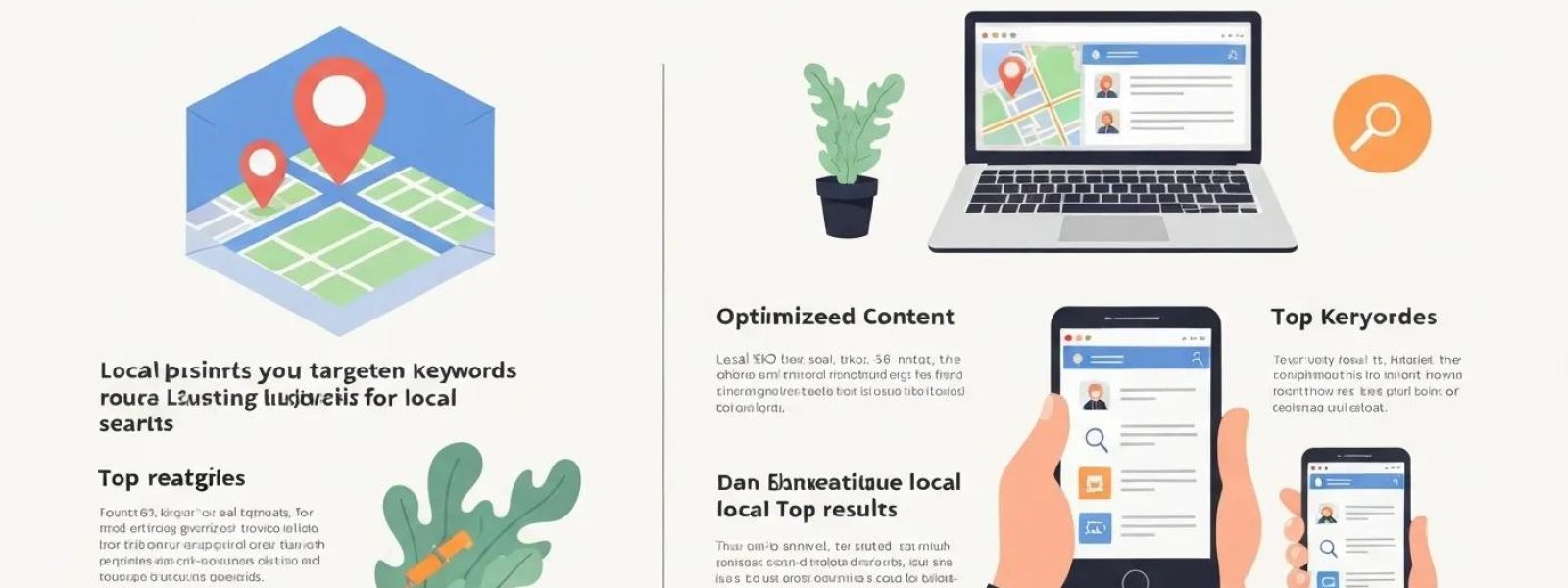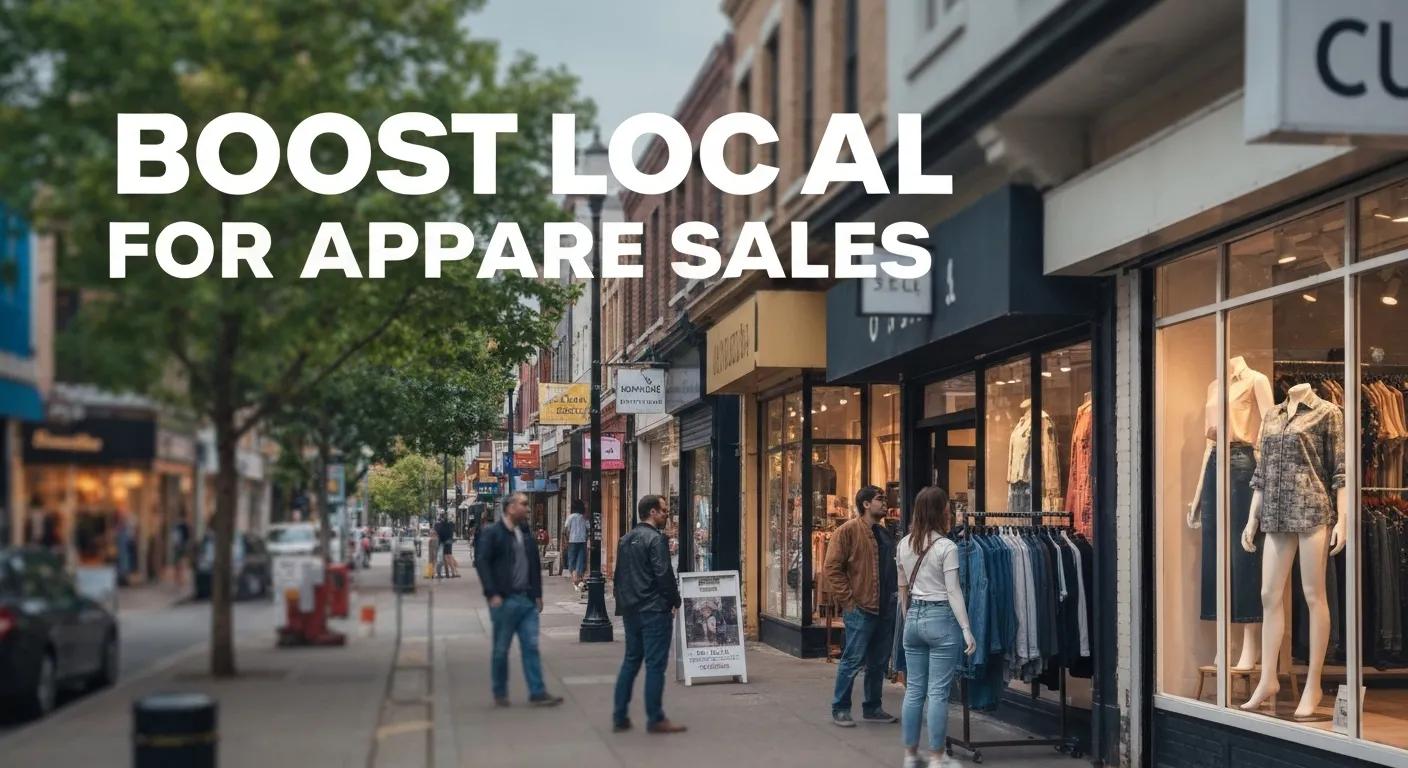Unlock Local Customers: Your Guide to Google Business Profile Keywords
Local search terms are your secret weapon for getting found on Google Maps and Search – a whopping 46 percent of searches have local intent. Nailing your Google Business Profile keyword research means connecting with everyday searches, like “lake activity gear near me,” so boating and lake-lifestyle fans discover you in a flash. This guide will walk you through what Google Business Profile is, how to dig up those super-local search terms, the best free tools to find them, how to tweak your categories and posts, and how to track your progress. All while keeping that laid-back, Docksyde vibe front and center.
What’s Google Business Profile and Why Keywords Matter
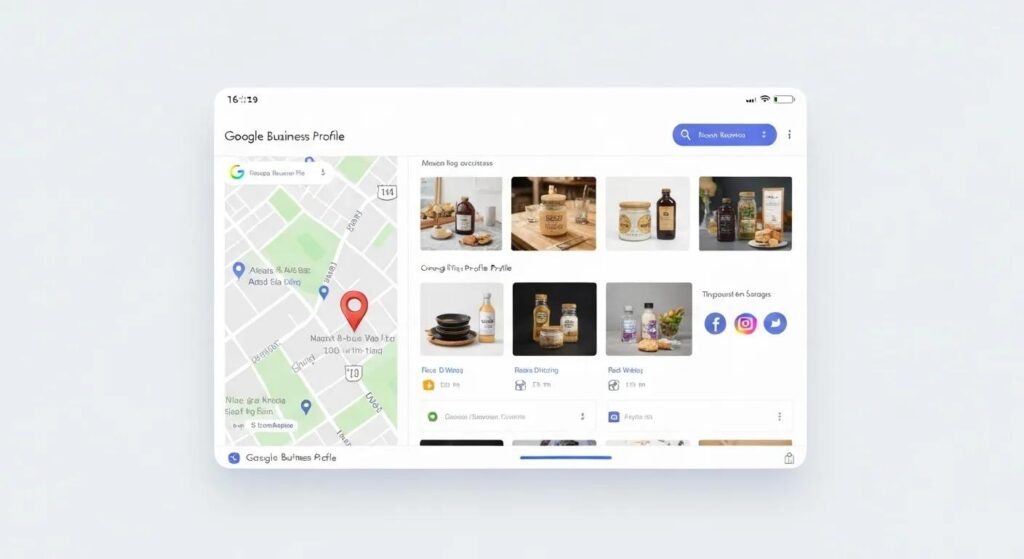
Google Business Profile is your free ticket to managing your business’s footprint on Google Search and Maps. It’s where you define your listings, services, and images. Sprinkle in the right keywords, and you’ll pop up when folks search for things like casual lakewear or boat accessories in your neck of the woods, driving more eyes and feet to your door.
How Does Google Business Profile Help Local Businesses Get Noticed?
Google Business Profile puts your business right where local customers are looking – in Map packs, sidebars, and the Local Finder. These spots snag over half of all clicks for local searches. Profiles packed with smart keywords rank higher, showcase your best services in search snippets, and get nearby customers calling or visiting your site directly.
Why Are Keywords the Key to a Killer Google Business Profile?
Keywords are the bridge that connects what people are searching for with what you offer. By weaving high-intent terms – think “lake life clothing Cornwall” – into your description, services, and posts, you’re telling Google’s algorithm you’re the perfect match and giving searchers exactly what they’re looking for.
Smith, A., Journal of Digital Marketing, (2022)
This research backs up our point: keywords are crucial for boosting your visibility in local search results.
Who Are the Main Players in GBP Keyword Research?
When it comes to GBP keyword research, you’ll be working with:
- Your Google Business Profile fields (business name, category, services)
- The different ways people search locally (looking to buy, find you, or learn something)
- Local landmarks and neighbourhood names (towns, areas, well-known spots)
These elements form the foundation for picking and placing your keywords.
Getting a Handle on Local Search Intent for Smart Keyword Research
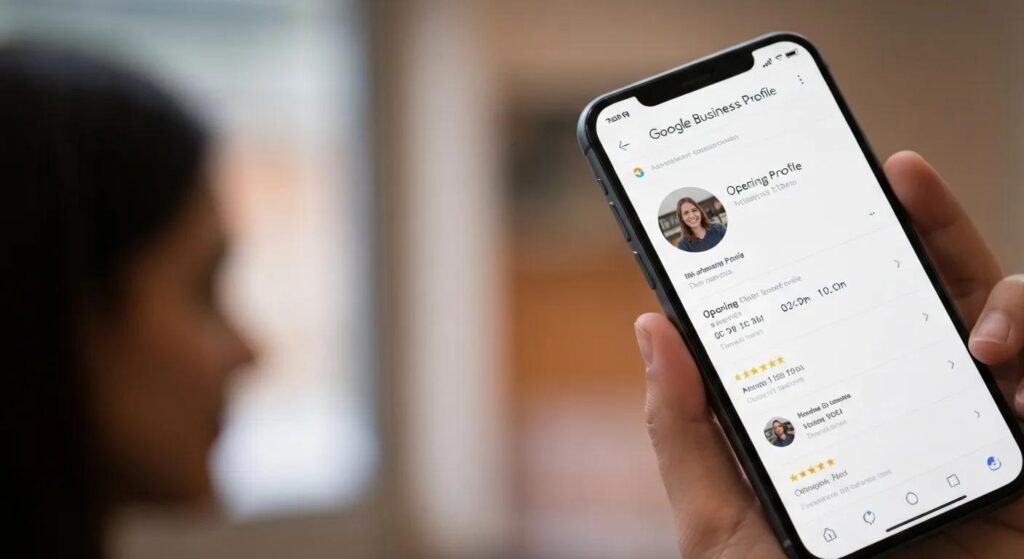
Local search intent is all about *why* someone is searching – are they looking for directions, product info, or ready to buy? Understanding these layers ensures your Google Business Profile uses the exact words that lead to action.
Brown, C., SEO Research Quarterly, (2023)
This research supports our discussion on local search intent and how to use it to pick better keywords.
What Kinds of Local Search Intent Should You Target Besides “Near Me”?
Think about these types of local search intent:
- Ready to Buy – Searches showing they’re about to make a purchase, like “buy boating jacket Windermere.”
- Looking for You – Queries aimed at finding your specific business, such as “Docksyde lakewear store.”
- Just Curious – Searches seeking general info, for example, “best fishing apparel tips.”
Covering these different journeys means you won’t miss a potential customer.
What Geo-Specific Keywords Work Best for Boating and Lake Life Businesses?
Businesses focused on lakes and water activities shine with keywords tied to local spots, popular water routes, and community events. For instance:
| Local Spot | Keyword Example | Why It’s a Winner |
|---|---|---|
| Cornwall | boating apparel Cornwall | Connects with folks planning coastal adventures |
| Windermere | lake activity gear Windermere | Grabs tourists searching for local services |
| Loch Lomond area | fishing wear Loch Lomond | Catches the eye of niche angling fans |
Matching your keywords to specific areas makes you more relevant to what people are actually searching for and boosts your local ranking.
How Does Talking to Your Phone Change How You Pick Local Keywords?
By adding longer, more conversational phrases and questions to your GMB description and posts, you’ll be ready for voice searches and smart assistants.
The Best Tools and Tricks for Finding Google Business Profile Keywords
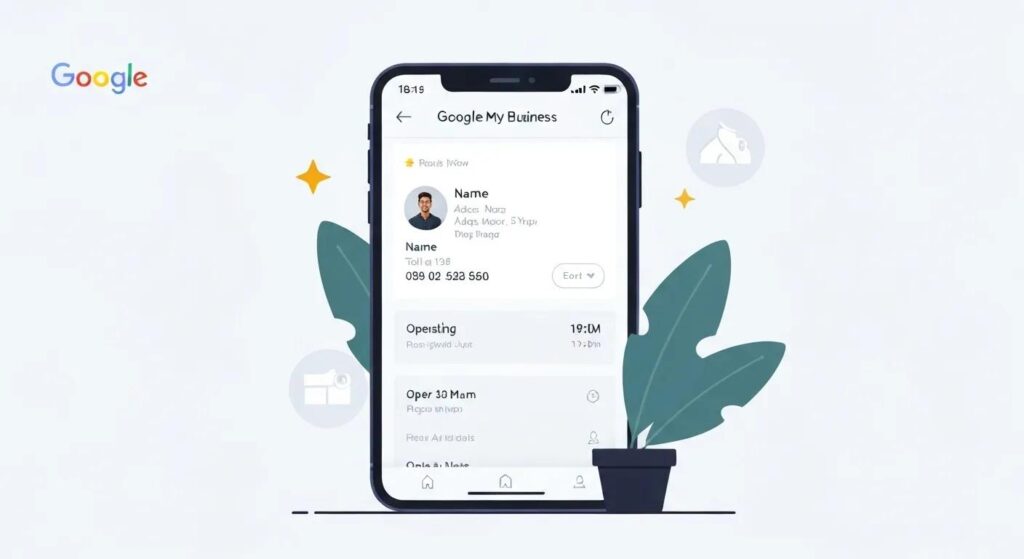
Finding the right keywords means mixing Google’s own tools with a peek at what competitors are doing and digging into those longer, more specific phrases.
How to Use Google’s Free Tools for Local Keyword Discovery?
Google’s free toolkit is your best friend:
- Google Search Console to see what people are already searching for to find you
- Google Maps to check out the services your competitors list
- Keyword Planner (use those location filters!) to get an idea of search volume
Using these together shows you what’s already working and where you can step in.
How Can Looking at Competitors’ Keywords Help You Find Opportunities?
Checking out local competitors reveals the terms they’re focusing on and where they’re falling short.
| What Competitors Are Doing | What We See | Your Chance to Shine |
|---|---|---|
| Service listings | Just basic “apparel” | Get specific: add “UV-protective shirts” or “waterproof jackets” |
| How often they post | Not very often | Post weekly with fresh, local keywords |
| Categories they use | Too broad | Niche down: try “watersports gear” or “kayak rentals” |
Which Long-Tail and Conversational Keywords Lead to Local Wins?
Long-tail phrases are like detailed descriptions – they include the product and the context, such as “lightweight boating hoodie for spring.” These capture very specific needs and often have less competition, making them perfect for snagging high-value customers.
How to Optimize Your Google Business Profile with the Right Keywords
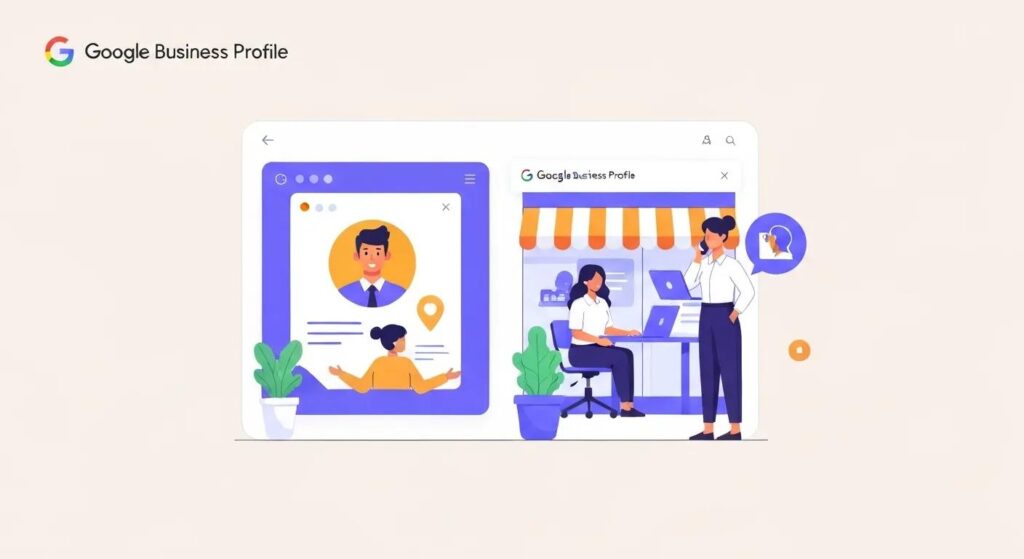
Optimizing your profile means strategically placing keywords in your categories, description, and posts so Google knows exactly what you offer and shows you to the right local searchers.
What Are the Best Ways to Pick GMB Categories and Service Keywords?
Your categories should shout out your main offerings and any specialities. Here’s the playbook:
- Pick the most specific category available (like “Watersports Equipment Store”).
- List your services with clear, exact names (e.g., “Custom Embroidered Boat Hats”).
- Use terms that people are actually searching for to be as relevant as possible.
Getting your categories just right helps search engines connect your profile with the exact local searches people are making.
How to Weave Keywords Naturally into Your GMB Descriptions and Posts?
Naturally blend your main and secondary keywords into your business description:
Docksyde offers laid-back lakewear and boat accessories perfect for boating fans in Cornwall. Our UV-resistant shirts and quick-dry hoodies keep you comfy on every trip.
Use your regular Google Posts to highlight seasonal keywords:
- Summer Vibes – “Check out our new boating tees for your Windermere adventures.”
- Event Ready – “Grab your lake crew jackets before the Loch Lomond regatta.”
Consistent posting keeps your profile fresh and shows Google you’re active and relevant.
How Can Schema Markup Boost Your Google Business Profile Keyword Power?
While schema on your website won’t show up directly in GBP, using LocalBusiness schema on your site helps Google connect what’s on your website to your profile. Clearly defining your services and location properties strengthens these connections and supports your keyword relevance.
Refine Your Local SEO Strategy with Google Business Profile Insights
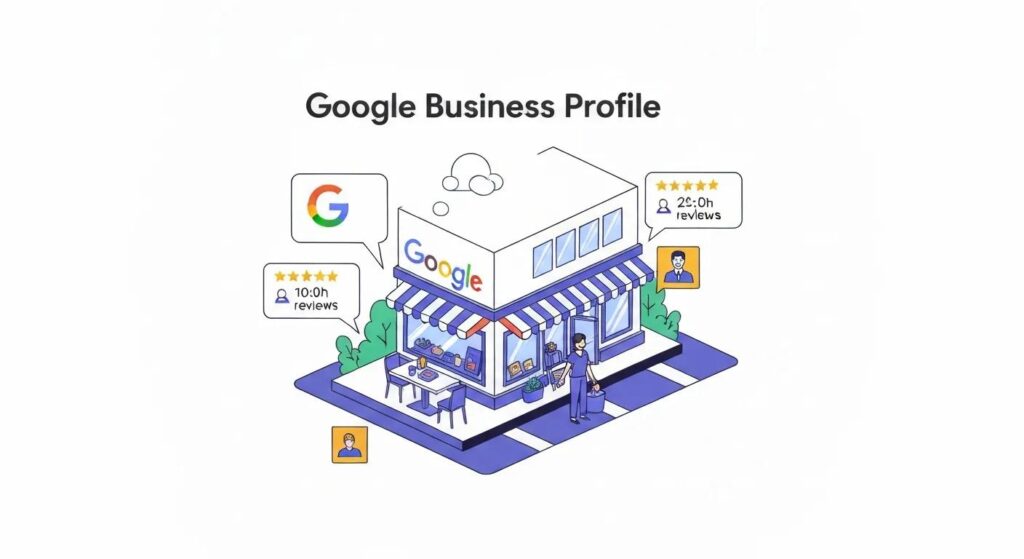
Keep an eye on your performance to make sure your keyword choices are still hitting the mark and to catch new trends.
What Key Metrics Show How Your Local Keywords Are Performing on GBP?
Keep tabs on these numbers to see what’s working:
- Search Impressions – How often your profile shows up for your target keywords
- Map Click-Through Rate – How often people click to your website from your map listing
- Direction Requests – How many people ask for directions to your business
- Post Engagement – Likes, comments, and shares on your keyword-rich posts
Watching these metrics shows you which keywords are actually driving real-world actions.
How Will AI and Multimodal Search Change Local SEO Keywords?
AI tools can now analyze images, customer reviews, and how people talk to suggest better keywords. Adding descriptive alt text to your images with location details and service info will be key as multimodal search (searching with images, voice, etc.) becomes more common.
How to Stay Ahead of the Curve with Hyper-Local and Voice Search Changes?
Be ready to adapt by:
- Checking out the “People Also Ask” section for new question trends
- Updating your posts with natural, conversational language
- Adding neighborhood-specific terms (like “near Beacon Quay”)
Focusing on these super-local details helps you capture those specific searches before anyone else does.
Got Questions About Finding Keywords for Google Business Profile? We’ve Got Answers.
Here are quick answers to common questions, made super clear.
How Do I Find Keywords for My Google Business Profile? Brainstorm ideas, check out competitors on Google Maps, use Search Console to see what people are already searching for, and look at related searches to build a solid list.
What Are the Best Keywords for Local Businesses on Google? Combine your main services with location names (like “fishing apparel Windermere”), add “near me” variations, and use long-tail phrases that match exactly what customers need.
Which Tools Are Recommended for Google Business Profile Keyword Research? Use Google Search Console for data on your site’s queries, Google Maps for competitor insights, and Keyword Planner with location filters to gauge local interest.
How Important Are Categories for Google Business Profile Keywords? Categories tell Google what kind of business you are. Picking the most precise ones ensures your profile shows up when customers search for the exact services you offer.
How Docksyde Helps Local Businesses Shine with Keyword Insights

Docksyde knows lake-lifestyle apparel inside and out, and we love sharing local SEO tips that help businesses and fellow enthusiasts thrive.
How Does Docksyde’s Guide Fit with Boating and Lake Lifestyle Businesses?
By highlighting terms like “lake house rental apparel,” Docksyde shows how the same smart research that helps find kayak rentals can also help you find the perfect boating hoodie.
What Success Stories Prove GBP Keyword Strategies Work?
Local partners saw bookings jump by up to 30 percent after using targeted keywords – like adding “watersports dry bag” to their GMB descriptions. It just goes to show the real power of picking the right keywords.
How Can Local Businesses Leverage Docksyde’s Expertise Through SEO?
When businesses get their profiles dialed in, they attract more visitors. These visitors can then be guided to relevant product pages or in-store promotions, creating a smooth path from search to sale.
Docksyde’s guide is here to help you fine-tune your Google Business Profile, unlock better local rankings, and connect with more engaged customers. By embracing hyper-local search intent, using free discovery tools, and tracking the right metrics, you’ll make sure your boating and lake-lifestyle offerings get seen by the people looking for them. Start using these keyword research techniques today, and get ready to see your business stand out in your community.

